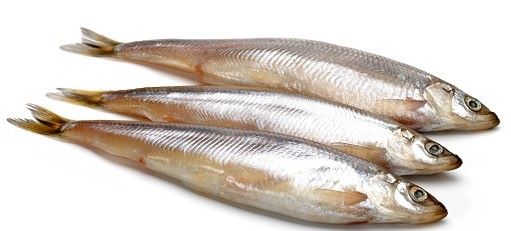

Whitebaits are safe for dogs to eat in small amounts as a source of protein and omega-3 fatty acids, which play an important role in muscle, bone, skin, and coat health as well as brain and heart health. Omega-3 fatty acids are also known for their anti-inflammatory properties, which can help reduce the risk of chronic diseases like arthritis and cancer. However, whitebait is high in purines which can cause a build-up of uric acid in dogs with certain health conditions such as liver or kidney disease, and can increase the risk of developing bladder or kidney stones in breeds, such as Dalmatians and Bulldogs, prone to hyperuricosuria.
Whitebait contains high-quality protein which is essential for muscle, bone and skin health. The fish also contains omega-3 fatty acids which are beneficial for brain and heart health and help to reduce inflammation.
Whitebait is high in purines which, when broken down by the body into uric acid, can cause a build-up in dogs with certain health conditions, or those prone to hyperuricosuria. This can lead to the formation of bladder or kidney stones.
Dog owners can feed their pets dehydrated whitebait as an occasional treat, sprinkled on top of meals. Frozen whitebait can be served raw, while fresh whitebait can be lightly cooked and served with meals.
Whitebait is a type of fish, also known as ‘sand eel’, ‘whitebait’ or ‘sprat’, and is commonly found in coastal areas of the United Kingdom, Ireland, and other parts of Europe. This fish is small at between 1 to 6 cm and is a popular meal among humans and pets alike. When it comes to dogs, whitebait provides proteins and omega-3 fatty acids, which are essential for muscle, bone, skin, and coat health as well as brain and heart health. Omega-3 also has anti-inflammatory properties. There are however, some risks associated with their consumption. Whitebait is high in purines, which can cause a build-up of uric acid in certain dog breeds prone to hyperuricosuria, hence increasing the risk of bladder or kidney stones.
For safety reasons, it is best to feed whitebait to your pet in small amounts as an occasional treat. Dehydrated whitebait can be sprinkled on top of meals, while frozen or fresh whitebait can be lightly cooked and served. Additionally, you may want to base your pet’s diet on nutrient-rich eggs, meat, and vegetables, and buy omega-3 supplements for their nourishment instead of opting for whitebait.
Have you ever fed your pet whitebait? What kind of experience did they have? Do you think it's safe to include whitebait in your pet's diet?
No matter what you decide to feed your four-legged friend, the most important thing is to make sure that their diet is varied, balanced and safe. We hope your pet enjoys a bowl full of health and happiness!